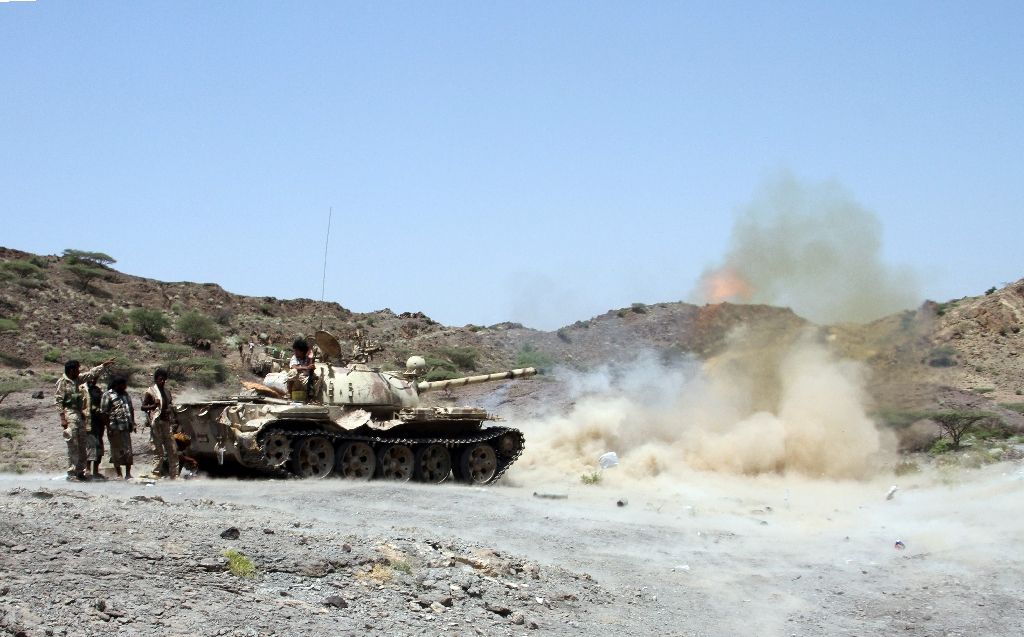Aden, Riyadh-In a new maneuver, rebels controlling the Yemeni capital Sana’a have suggested “a border ceasefire” with Saudi Arabia, if the Arab Coalition halts its airstrikes against the insurgents.
However, the Saudi-led coalition on Monday rejected the proposal, which was made by the head of the so-called Supreme Political Council.
Coalition spokesperson Major General Ahmed Asiri said: “If Houthis want to have a ceasefire they know what they have to do,” referring to the peace initiative proposed last month by U.S. Secretary of State John Kerry.
Kerry’s initiative calls on rebels to withdraw from seized areas including Sana’a, which they have held since 2014.
Earlier, Saleh al-Samad, the chief of the so-called Houthi-backed political council, said in a speech that in exchange of stopping the aggression against Yemen by land, sea and air, and of stopping the air strikes and lifting what he called “the siege,” Houthis will halt combat operations on the border and put an end to missile attacks on Saudi Arabia.
However, Asiri said the coalition welcomes “any effort to have a genuine political settlement” instead of a “short ceasefire without any control, without any observation.”
Samad also requested an amnesty for Yemeni fighters allied to the National Army and the Popular Resistance if the Kingdom stopped air strikes and lifted a near blockade on the country.
Meanwhile, Yemen’s President Abd Rabbuh Mansour Hadi launched a verbal attack on ousted President Ali Abdullah Saleh, accusing him of handing over Yemen to Iran.
“Today, Yemenis are totally aware that Aden would not be stable or secure and that Sana’a would not be recuperated in the presence of a cavern, a chopper and an Imam,” he said.
Addressing the people of Yemen on the 54th national anniversary of Yemen’s September 26 Revolution, Hadi said the Iranian sectarian scheme has no place among free Yemenis.
The president said that the struggle of heroic Yemenis in the past two years was a major obstacle to the rebellious plan, which targets the entire region.
He said the obvious hostility shown by the Houthis and their ousted ally against the national project and their rejection of the outputs of the national dialogue is similar to the position of their forerunners against the Constitution of 1948.
Meanwhile, rebels’ media outlets have documented a widening gap between Saleh and the Houthis due to several issues, mainly a dispute concerning the authorities of the so-called Higher Political Council.
